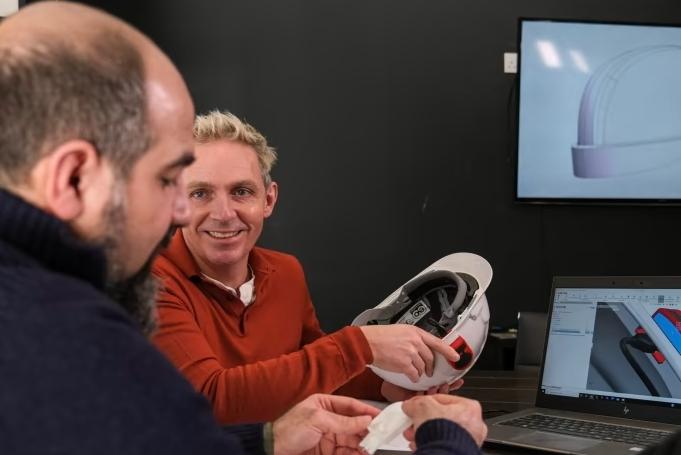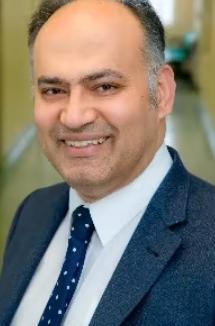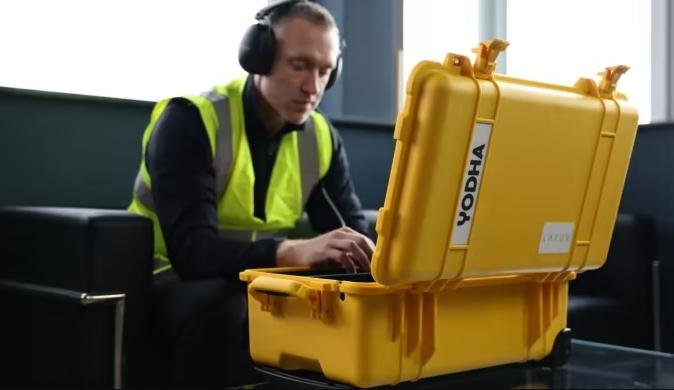The government is taking measures to expand its capacity and cater to the increasing demand
Mathew Norbury, the founder of FC Labs, saw the UK government’s £1 million prize fund for innovations in occupational health as an excellent opportunity for his tech start-up. FC Labs specializes in developing sensors that can detect when a worker is losing focus, providing them with a helpful “nudge” through an app to prevent accidents or errors.
FC Labs’ sensors are typically embedded in hard hats and utilize near-infrared light to assess blood flow and oxygen levels in the prefrontal cortex of the brain, crucial for regulating focus, actions, and emotions. Norbury’s intuition paid off, as FC Labs emerged as a winner in the bid, securing £96,000 from the UK fund. The company intends to utilize the funds to further develop a wrist-worn version of their innovative technology.
According to Norbury, the “nudge” offered through their app, coupled with self-assessment and signposting features, will enhance individuals’ self-awareness of potential concerns and motivate them to explore and embrace occupational health support options.

The government fund requires applicants to showcase their approach in leveraging technology such as artificial intelligence or data collection to enhance occupational health and achieve better health outcomes for employees of SMEs.
The UK government is making efforts to expand access to occupational health services to meet the growing demand for them. Occupational health professionals focus on assessing how work affects employees and ensuring their fitness for their roles. Currently, only approximately half of the working population has access to occupational health services.
Tom Pursglove, the minister for disabled people, health, and work, emphasizes the significance of good occupational health in creating a more diverse and inclusive workforce for employers. He stresses the importance of prioritizing innovation that is accessible and user-friendly for both employers and employees.
During a period when a significant number of people are unemployed due to health issues, and the NHS faces challenges with extended treatment waiting lists and doctor strikes, the government’s initiatives are even more critical. Among the successful recipients of the fund is Latus Health, with its remote health screening device connected to the Yodha platform.
Designed for small to medium-sized businesses, the Yodha platform allows employees to schedule appointments and keep track of medical records, including hearing and blood tests. The platform also offers video consultations with healthcare professionals who assist employees through the screening process and record essential data.

Jack Latus, the founder and CEO of Latus Health, expresses that the occupational health industry has been urging the government to collaborate and be part of the solution for a long time. He views prize fund initiatives, like the one in the UK, as an initial step towards exploring the partnership between government and private occupational health practitioners.
According to Latus, the current fund is primarily aimed at assessing feasibility, and successful applicants in phase one may have the chance for additional funding in phase two to scale up their projects. He emphasizes that many businesses depend on the NHS to facilitate employees’ return to work after illness, but a faster and more efficient service could be offered if it were provided privately by employers themselves.

On the other hand, Kaveh Asanati, a consultant occupational physician and visiting professor at Imperial College London, holds a different view. He proposes that the government should explore the possibility of integrating occupational health funding into mainstream NHS activities. As an example, GPs and other doctors could refer patients to occupational health services within the NHS, enhancing accessibility and integration of these services.
“SMEs currently lack good access to occupational health, leaving people with limited options,” Asanati explains. “The government should take the responsibility of funding initiatives that can address this issue effectively. Additionally, conducting a benchmarking exercise to compare the UK with countries like Japan, Finland, and Spain would be beneficial to identify areas for improvement in our occupational health services.”
According to Asanati, the government’s fund for innovative occupational health ideas could be a blueprint for other healthcare sectors. By establishing funding streams, it has the capacity to nurture a culture of innovation that addresses changing health demands and enhances patient outcomes.
He emphasizes:
“Embracing technological advancements and staying updated with emerging trends are vital for the future of occupational health, enabling more proactive and targeted approaches to safeguard and promote employee well-being in the workplace.”






